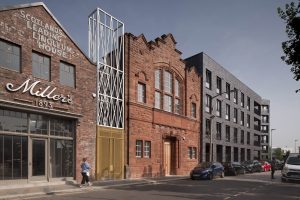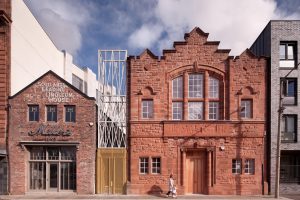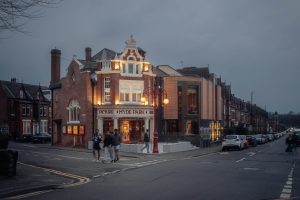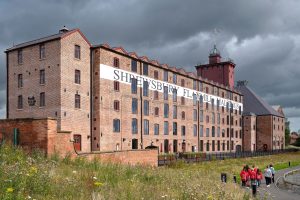In our second episode exploring how sustainability affects heritage buildings, we speak to Procter-Rihl Architects’ Chris Procter, lead author of ACAN’s Climate Emergency Conservation Area Toolkit – England, which will be launched on December 6.
He explains how conservation areas can streamline the consent process by developing a pattern book approach to building elements.
And he talks about his detailed audit of Islington’s Cross Street Conservation Area. This found that two-thirds of existing single-glazed windows could be suitable for double or triple-glazing, 44 per cent of solid external walls could be wrapped in external wall insulation and over 30 per cent of roofs could be fitted with solar panels.
He also delves into the sensitive topic of window replacement, arguing that if existing windows do not conform to the original window pattern of a building, they should qualify for upgrading.
He advocates development of a local pattern books of details, complete with approved manufacturers, to simplify the consent process for building owners, relieve planners’ workloads, and speed up retrofit.
To catch up on all AJ Climate Champions episodes, click here.
Find Climate Champions on your favourite podcast app: subscribe via Spotify, Apple Podcasts, Google Podcasts, Deezer and Podbean
About Chris Procter
Chris Procter co-founded Procter-Rihl Architects in 1995. The practice is best known for its award-winning Slice House, a concrete and steel house in Porto Alegre, Brazil, completed in 2005. Subsequent work includes a mix of London house extensions, public realm work and several Passivhaus residential projects in Vermont, USA, where he is from. An early adopter, Procter did his Passivhaus training back in 2011 on one of the UK’s first Passivhaus courses.
Projects and resources mentioned in this episode
Climate Emergency Conservation Area Toolkit – England: A report for politicians and policymakers (Architects Climate Action Network, November 2022)
London Councils Retrofit London
Credits
Climate Champions is produced in association with ACAN, the Architects’ Climate Action Network
Podcast produced and edited by Simon Aldous
Music: Edmilson do Pífano, Forró de dois Amigos. Interpretation: Felipe Tanaka e banda Balaio de Baião
 The Architects’ Journal Architecture News & Buildings
The Architects’ Journal Architecture News & Buildings




